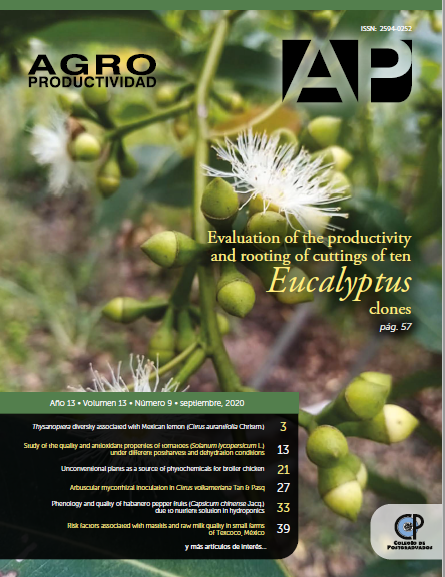Characterization of Stakeholders in the Value Chain and Commercialization Channels of String Cheese in Vega de Alatorre, Veracruz, México
##plugins.themes.bootstrap3.article.main##
Keywords
Resumen
Purpose: Characterize Stakeholders in the Value Chain and Commercialization
Channels of String Cheese in Vega de Alatorre, Veracruz, México.
Methodology: The study was performed in the period June-August 2019, including 61
surveys responded by milk producers and 22 dairy product processers (cheesemakers).
Local Agri-food Systems (LAFS) and value chain approaches were applied.
Results: The value chain of string cheese in this municipality consists of providers of
supplies, dairy cattle breeders, gatherers, cheesemakers, sellers, and final consumers.
String cheese is commercialized through 5 channels: (a) products are distributed by
cheesemakers to wholesalers and retailers, (b) products are sold in food stores,
establishments or restaurants within the region, (c) products are sold to distributors who
buy the product directly in the factory, d) direct sale in a grocery or traditional dairy store
in the municipality and (e) products are sold at small-scale to final consumers in houses.
Study Limitations: Distrust of some stakeholders to provide information for the study,
due to the insecurity in the state of Veracruz.
Conclusion: Limitations were found in the development and integration of the value
chain. The sale of cheese is carried out without sales contracts or cooperation
agreements. Prices are set subjectively by the dominant stakeholder, and in order to
influence the market price, producers and processors arbitrarily make conditional on the
supply or demand for milk and cheese, which creates market failures and inefficiencies.

